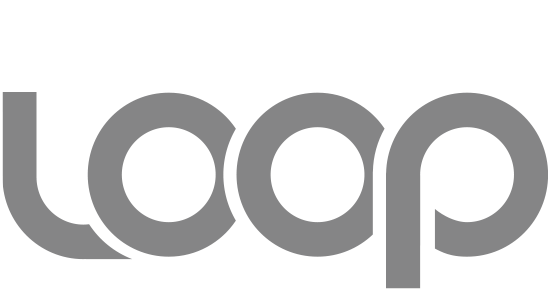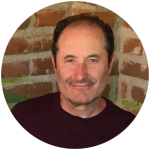Signer

Bevan Smith aka Signer de Nueva Zelanda acaba de lanzar un nuevo álbum por Carpark “The New Face of Smiling” [2004], que ha significado un cambio en la forma de trabajar de Smith, por cuanto se trata ahora de un trabajo colectivo con otros músicos. En lo musical, este nuevo trabajo incorpora instrumentos tradicionales como la guitarra y la batería, y una estructura orientada al formato canción en la que Smith pone su melosa voz.
En esta segunda entrevista, Signer hace un breve repaso a sus comienzos como Aspen, en su propio sello Involve, y de la evolución musical entre sus anteriores discos «Album» (2000) y «Low Light Dreams» (2002).
Sitios de interés: [www.carparkrecords.com](http://www.carparkrecords.com) y [www.involverecords.com](http://www.involverecords.com)
New Zealander Bevan Smith aka Signer recently released a new album on Carpark “The New Phase of Smiling” [2004]. It marks a change in Smith’s way of working, now collaborating with other musicians rather than producing solo. Musically, the new production incorporates traditional instruments like guitar and drums, and a structure focused on song format where Smith features his mellow voice. In this second interview, Signer gives a brief review of his beginnings as Aspen on his own imprint Involve, and the musical evolution between his previous albums “Album” (2000) and “Low Light Dreams” (2002).
Links of interest: [www.carparkrecords.com](http://www.carparkrecords.com) or [www.involverecords.com](http://www.involverecords.com)
**Cuéntanos acerca de los comienzos de Signer y de Involve Records**
“Involve comenzó en 1998, editando ‘Are you That Retail Snob’ como Aspen y el primer álbum de Jet Jaguar. Empecé a editar lo que mis amigos y yo habíamos hecho a lo largo de los años.
Surgió Signer para publicar música más techno y minimalista. Esta es mi propuesta más importante desde que firmé con Carpark y terminé de producir/editar como Aspen”.
**La primera música que escuché de ti fue tu álbum para Carpark que tenía un enfoque más electrónico que el nuevo. ¿Cuál de los dos álbumes crees tú que tiene un sonido más regular o usual como Signer?**
“Bueno, veo mi sonido como cambiante. No solo escucho un tipo particular de estilo de música. En este nuevo disco elegí representar algo más mis influencias y escribir canciones. Las canciones que estoy escribiendo en este momento, son como multilayered de guitarras de canciones pop y así se convierte en el sonido de Signer. Sin embargo, éste cambiará de seguro en el futuro. No me voy a quedar pegado haciendo la misma cosa una y otra vez…”
**¿Hay alguna influencia de la cultura Maori en tu música/letras?**
“Yo diría que no. Vivir en Nueva Zelanda y dentro de su cultura influiría mi música, pero creo que no hay influencias directas. No pienso que me gustaría ponerme a escribir música con influencia Maori sin saber algo más de ella. Lamentablemente tengo que decir que hoy por hoy soy muy ignorante. Conozco algunos de los sonidos asociados, flautas que se tocan por la nariz, conchas de mar, canciones y cánticos, pero no tengo el conocimiento de representar eso de ningún modo respetuoso y con gusto. Lo mismo con las letras…”
**¿Cuál es tu percepción acerca de la escena musical en Nueva Zelanda? ¿Hay diferencias entre las propuestas de las bandas del norte y sur de la isla?**
“No estoy seguro de que existan diferencias entre las bandas del norte y del sur de la isla. Tradicionalmente, la isla del sur fue la casa del sonido Dunedin/Flying Nun; guitarras discordantes y pop a base de grabaciones en cuatro pistas. Pero eso ya no es el caso. Auckland puede que tenga una escena más hip-hop/drum’n’bass y house, y Wellington es más rock independiente. Hay muy buenas cosas pasando en varias ciudades. La escena musical produce algunos resultados interesantes cuando la gente está tan aislada de las tendencias y de lo que sucede en las grandes escenas como Nueva York o Londres, etc. La gente quizá quiere hacer su propia cosa en Nueva Zelanda. Esto a veces es bueno, otras veces malo”.
**¿Cómo te afectó grabar tu álbum “Low Light Dreams” en Londres?**
“Hmm, bueno, no pude dormir en aquel tiempo debido a la cantidad de estrés que tenía en mi vida. En consecuencia, escribí la música para que me ayudara a dormir”.
**¿Cuáles son tus futuros proyectos?**
“Skallander, que es Matthew Mitchell y yo en el sello Loop Recordings en Wellington. Ummm, estoy escribiendo y grabando con Dino Karlis y también estoy produciendo y grabando con Nik Brinkman. Ambos proyectos están centrados en torno a capas alteradas de guitarra pop y melódica”.
**¿Tienes contacto con otros músicos de Nueva Zelanda? ¿Puedes recomendar algunas ediciones de tu país? Personalmente el trabajo de Rosy Parlane para el sello Touch es uno de los más destacados en este año.**
“Sí, claro, chequea el trabajo de Rosy. También el de Dean Roberts en Kranky, me encantan sus cosas. Marineville, esta banda la estoy editando en Involve y es muy buena. HDU es una fantástica banda de art rock y noise. Die! Die! Die!, The Mint Chicks, David Kilgour. Estas son las cosas nuevas que se me vienen a la cabeza. También hay muchas cosas antiguas buenas como Bailter Space, Graeme y Peter Jefferies, The Skeptics, Dead C, The Clean, Straitjacket Fits… y muchas otras cosas que probablemente estoy olvidando…”
Texto: Francisco Bernet P.
Diciembre 2004
**Please tell us about the beginnings of Signer and Involve Records.**
“Involve started out in 1998 releasing Aspen ‘Are you That Retail Snob’ and the first Jet Jaguar album. I started it to release material that my friends and I had been completing over the years.
I came up with Signer to release more techno and minimalist music, it’s my main release output since I got signed to Carpark and stopped producing/releasing under Aspen.”
**The first music I heard from you was your debut album for Carpark Records, which had a more electronic approach than the new one. Which of both albums could you say has a regular or more usual Signer sound?**
“Well, I see my sound as changing. I don’t solely listen to one particular genre of music. On this last release I chose to represent my influences a bit more and write songs. The songs I’m writing at the moment are like multilayered guitar pop songs, so it becomes the Signer sound. However, it will change in the future for sure. I’m not going to get stuck doing one thing again and again…”
**Is there any influence of the Maori culture in your music/lyrics?**
“I would say not. Living in New Zealand and within its culture will influence my music but there are no direct influences, I think. I don’t think I would like to set out to write Maori-influenced music without knowing a lot more about it. I would say I’m painfully ignorant at present. I know some of the sounds associated – nose flutes, certain sea shells, songs and chants – but I haven’t the knowledge to represent this in any respectful or tasteful way. Same with lyrics…”
**What is your perception about the music scene in NZ? Are there differences between the proposals from the Northern and Southern Island bands?**
“I’m not sure about differences in North/South island bands. Traditionally, the South Island was home to the Dunedin/Flying Nun sound – jangly guitars and homemade four track pop. But this is no longer strictly the case. Auckland may have a more hip-hop/drum and bass/house scene and Wellington more indie rock. There is good stuff happening in most places. The music scene produces some interesting results when people are so isolated from trends and happenings in big world scenes such as New York or London. People maybe are more likely to do their own thing in New Zealand. Sometimes this is good, sometimes it’s bad.”
**How did recording ‘Low Light Dreams’ in London affect you?**
“Hmm… well, I couldn’t sleep at that time in London due to major stress in my life, hence writing the music in order to help me sleep.”
**What are your future projects?**
“Skallander — me and Matthew Mitchell on Loop Recordings in Wellington, New Zealand. Ummm, I’m writing and recording with Dino Karlis and also producing and recording with Nik Brinkman, both projects being centred around altered/layered melodic guitar pop.”
**Do you have contact with other musicians in New Zealand? Can you recommend some releases from your country? Personally, the last work of Rosy Parlane for Touch Records is one of the highlights of the year.**
“Yeah, for sure, check out Rosy’s work. Also Dean Roberts on Kranky — I love his stuff. Marineville, this band I’m releasing on Involve, are great. HDU are a fantastic art rock/noise band. Die! Die! Die!, The Mint Chicks, David Kilgour. This is all the new stuff that comes to mind. There is loads of good older

